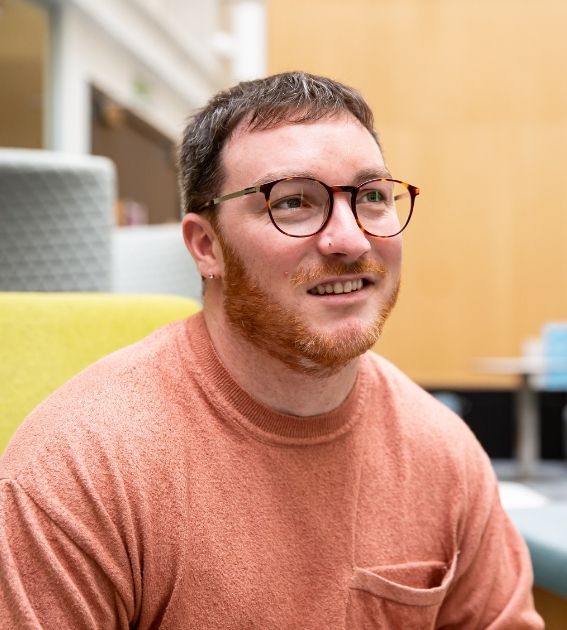Sam, a former youth worker in Essex joined Approach Social Work (formerly known as the Frontline programme) in 2023. Feeling restricted in the support he could offer young people in his previous role, led him to embark his new career as a social worker.
Prior to Frontline I was working as a professionally qualified youth worker within a local authority, managing a small team and leading on sexual health and LGBTQ+ youth work for the service. I had been working within the youth work field for about 15 years and had always considered social work as a career change, as I always felt limited in the support I could offer the young people that I worked with. I found out about Approach through an online presentation within the local authority I worked in.
How has your perception of social work changed during the Frontline programme?
Since starting the Approach, my perception of social work has changed a lot. I think there is a lot more to social work than you would think.
The different ‘hats’ we put on throughout the day when working with children, families and other professionals are endless.
Social work is all about working with people, where they are at, to make meaningful and lasting changes to ensure that children can grow up safe and free from harm or abuse.
What do you enjoy the most while being on Approach Social Work in Essex?
I am really enjoying the hub model of Approach, working in a small tight knit team with other Approach participants. Essex ensure that we can regularly meet with other hubs across the county, and they place value on the skills we are developing via our studies.
I feel as if Essex are really invested in us, supporting us with our journey from students to future social workers.
What skills have you gained Approach Social Work and used in your social work practice?
The way Frontline teaches social work has been instrumental. I’ve used the theory in my practice to help families think about how their experiences influence the decisions they are making.
I’ve found that using motivational interviewing helps me talk to families about what’s happening and how they can make things better to improve their situation. It allows us to work together rather than positioning me as the expert.
This approach has made such a positive difference to the families that I work with, especially if they’ve had social workers involved in the past.
Why work in Essex as a social worker?
I wanted to work in Essex as a social worker for several reasons. I live in Essex and had previously worked for the local authority so was aware of how they operate.
I also have friends who work for Essex in social care roles. They have talked about what a great employer Essex are and how the social care academy is always supporting social workers to develop their practice.
What impact do you hope to achieve in your community or the social work profession after completing the programme?
Once I complete the Approach, I would like to stay working within Essex in children’s safeguarding. In the future I would like to complete my practice educator training to support social work students with their placements.
I am also interested in equality, diversity and inclusion in social work and would like to do more to support this at a bigger level, particularly around the LGBTQ+ community.
What advice would you give to someone considering joining Approach Social Work?
If you are considering becoming a social worker, I would definitely recommend Approach Social Work, especially if you are someone like me who is a career changer.
The support you get from your consultant social worker and practice tutor is second to none.
The friendships you build with other participants is a bond like no other.
The teaching over the summer is invaluable. Although the training can be intense at times, it really pays off in practice.
